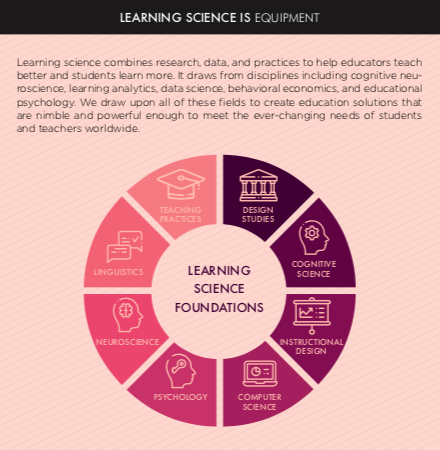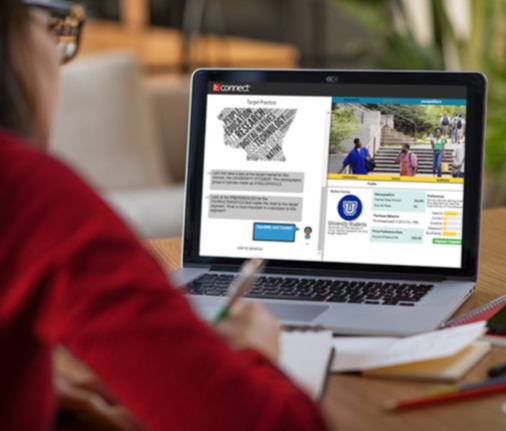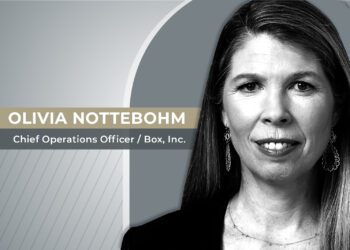Amid the shift from print to digital learning, Simon Allen, CEO of McGraw Hill, is ready for the opportunities ahead.
The growth of digital and online learning was already a reality before the COVID-19 pandemic stunned the world earlier this year and McGraw Hill was a company at the forefront of the shift. Yet according to CEO Simon Allen, the challenges presented by the pandemic and subsequent lockdown, which saw hundreds of millions of schoolchildren and higher ed students around the world forced to learn remotely, brought out the best in his team as they rushed to satisfy demand for content via online platforms.
“It’s been an incredibly interesting six to eight months for us. We very quickly moved everybody remotely as a company in March. And our customers around the world—schools, universities—did the same thing,” Allen told CEO Magazine in an exclusive interview. “We had an immense number of requests from university professors and school teachers around the world for assistance because, while some of them were familiar with digital learning, others were less comfortable with the idea.”
McGraw Hill is a global learning science company and one of the “big three” educational publishers that provides high-quality educational content, software, and services for pre-K through postgraduate education. The company also provides reference titles and trade publications for the medical, business, and engineering professions. McGraw Hill currently operates in 28 countries, has about 4,000 employees globally, and offers products and services in over 100 countries in 75+ languages. Headquartered in New York City, the company was acquired by Apollo Global Management in 2013 for $2.4 billion.
“A combined effort from our staff working with the teaching community around the world ensured that we could move them online as quickly as possible,” Allen said of the way McGraw Hill took on the crisis generated by the pandemic. “And we did that free of charge.”


Responding to a crisis
Based on the growing demand for classroom technology, McGraw Hill began offering digital products alongside traditional print products around 20 years ago. According to Allen, even before the coronavirus pandemic 75% of their higher education revenue was coming from digital products, yet the crisis would see McGraw Hill push forward with a rapidly accelerated shift in digital use that they had seen coming for some time.
“We were so aggressive in our shift to online learning, particularly in higher education and to a lesser degree in K12, and because we’ve had so much success with our Connect and ALEKS platforms, we’ve been well prepared for continued growth in digital products for a while,” Allen said. “When we look at our business overall— and this includes the US, Mexico, Singapore, Dubai, everywhere really—we’re seeing a huge increase in online learning that I think would probably have taken us at least five more years to reach without the coronavirus.
“In the biggest part of our business, higher education, around 75% of our business was digital at the end of 2019. In the months that followed, that number has grown to 89% and I think it is going to continue after the pandemic as part of a broader shift.”
The situation saw McGraw Hill need all hands on deck to meet the extraordinary demand. Allen only became CEO full-time in May, although he had served as interim CEO since October 2019, and he and his team immediately stepped up to face the challenge. “I very proudly took on the CEO role at a critical stage,” he explained. “We had staff working day and night around the world to get this done. Now we’re in the back-to-school rush and we’re operating at around six times our normal customer service activity, and we’re very well prepared because of what we saw in March, April and May.”
A permanent shift
Allen views the recent experience of the education technology industry during the COVID-19 pandemic as evidence of where companies such as McGraw Hill need to focus their investments in the near and long term. Furthermore, he believes the 130-year history of McGraw Hill and the reputation for quality the company has acquired over a century is crucial in building upon its success as the industry continues to evolve.
“There are so many educational technology companies that promise so many different things,” he said. “What we’re finding with our customers is that they love the credibility and strength of our brand. We’ve been known for well over a century for the quality of our content. You marry that with the quality of our platforms and you’ve got a great combination. For us going forward, our investment dollars are focused on the growth and development of our platforms and content, so students have a structured path to learning that provides the best possible outcomes.”
“And we’re partnering with a group called the Online Learning Consortium, which has helped train our staff on how to help faculty move their courses and teaching online.
Teamwork as a foundation
Allen was quick to emphasize the importance of collaboration within McGraw Hill as the key to its success before and during the pandemic. The company has four distinct business units—higher education, K12, a global professional group, and an international division—whose leaders are deeply knowledgeable about their individual markets.
“The privilege to work with such an experienced and knowledgeable team is wonderful for me,” Allen stressed. “We work with every single school district in the US for our K12 business. We also partner with many educational institutions around the world to ensure that we’re serving their students correctly. We also partner with governments in Asia, Africa, the Middle East, Latin America, Europe and elsewhere to provide them with platforms and content for students in public schools.
“I feel more confident now than I ever have in my 34 years in this business. I’ve only ever worked in one industry, and that’s education,” he emphasized. “Whenever you have an emergency like this, it gives you the chance to reflect on where you are as a company. We’re at the stage now where education is shifting so rapidly that we’re better positioned than many of our competitors thanks to the quality of our brand, platform, and content. The model of a hybrid learning system with both face-to-face and remote instruction, is likely to continue forever, particularly at the higher education level.”


A global vision
Allen believes the transition to online learning is not only a global challenge but also one of great social responsibility given the obvious inequities among students across regions and even within individual countries.
“The pandemic has highlighted many of those inequalities in terms of who has access to laptops, Wifi, and so on,” he concluded. “How do we help close the equity gap which the pandemic has increased and provide the right materials at the right price? What we will never do, or aspire to do, is to replace the teacher. We know that teachers are critical to the successful provision of education at every level. Our goal is to support teachers and students by giving them the tools they need to succeed.”












